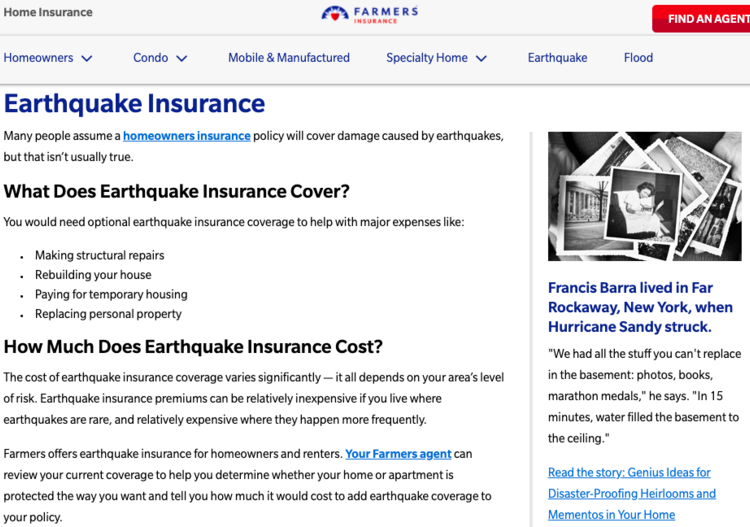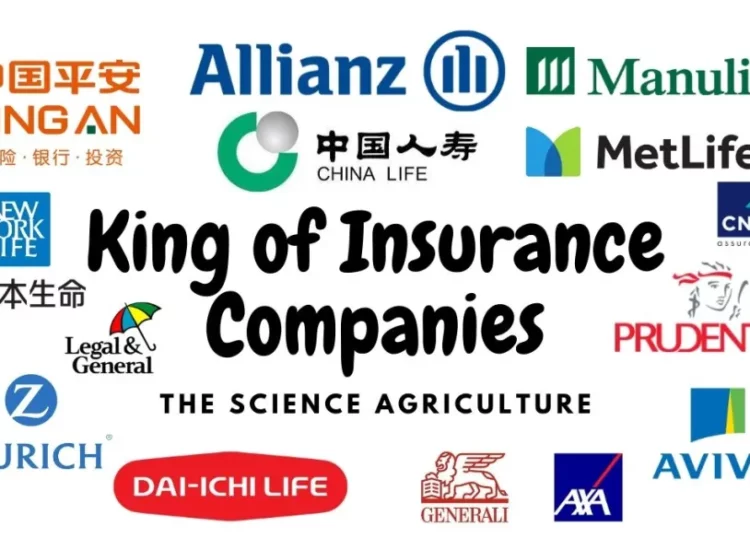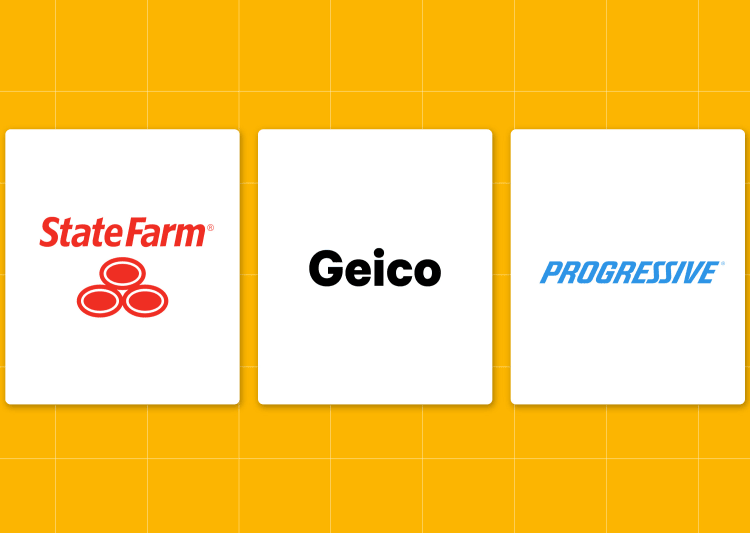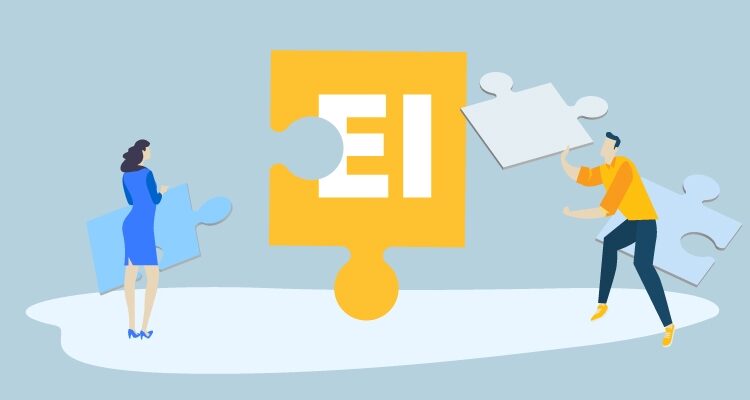Securing a home loan can be challenging, especially when navigating the complexities of a self employed mortgage loan. This article provides a comprehensive guide for freelancers, entrepreneurs, and independent contractors seeking homeownership. We will address the unique hurdles faced by self-employed individuals in the mortgage application process, offering practical strategies and insights to increase your chances of approval. This guide covers income verification, crucial documentation, and various mortgage options available to help you achieve your homeownership goals.
Toc
- 1. Understanding Self-Employed Mortgage Loan Challenges
- 2. Key Factors Impacting Self-Employed Mortgage Loan Approval
- 3. Essential Documentation for Self-Employed Mortgage Loan Applications
- 4. Related articles 01:
- 5. Calculating Self-Employed Income for Mortgage Qualification
- 6. Mortgage Options for Self-Employed Borrowers
- 7. Improving Your Self-Employed Mortgage Loan Approval Chances
- 8. Avoiding Common Mistakes in Your Self-Employed Mortgage Application
- 9. Finding the Best Self-Employed Mortgage Lenders
- 10. Final Considerations for Self-Employed Mortgage Loan Success
- 11. Related articles 02:
Understanding Self-Employed Mortgage Loan Challenges

Self-employed mortgage loans present unique hurdles that require careful navigation. Unlike traditional employees with consistent W-2 income, self-employed borrowers must overcome several distinctive challenges:
Income Verification Complexities
- Inconsistent Income Streams: Freelancers and entrepreneurs often experience fluctuating monthly earnings, which can concern lenders. This inconsistency raises red flags regarding the borrower’s ability to make consistent mortgage payments.
- Documentation Requirements: Extensive paperwork replaces simple pay stubs and employment verification. Self-employed individuals must prepare detailed financial documents, which can feel overwhelming.
- Risk Perception: Lenders typically view self-employed applicants as higher-risk borrowers. This perception can lead to stricter lending criteria and higher interest rates, making the process feel even more daunting.
- Emerging Bank Statement Programs: In response to the challenges faced by self-employed borrowers, many lenders are now offering bank statement programs. These programs analyze cash flow patterns over time, mitigating the issues associated with inconsistent income. By focusing on actual deposits rather than traditional income verification methods, these programs are gaining popularity among self-employed individuals.
Key Factors Impacting Self-Employed Mortgage Loan Approval
When applying for a self-employed mortgage loan, several key factors influence your approval chances:
- Credit Score Stability: A higher credit score can significantly enhance your borrowing potential. Lenders often require a minimum score of 620 for conventional loans, but higher scores will yield better rates.
- Consistent Income Documentation: Lenders want to see a track record of stable income. Providing thorough documentation can help demonstrate your financial reliability.
- Debt-to-Income Ratio: This ratio measures your monthly debt payments against your gross monthly income. Lenders typically prefer a DTI ratio of 43% or lower.
- Length of Self-Employment History: Lenders often prefer applicants with at least two years of self-employment history, as it provides a clearer picture of income stability.
- Financial Record-Keeping Practices: Organized financial records not only simplify the application process but also build credibility with lenders.
- Alternative Credit Scoring Models: An emerging trend in mortgage lending is the use of alternative credit scoring models. Some lenders now consider factors beyond traditional credit scores, such as rent payments and utility bill payments, to assess creditworthiness. This flexibility can be particularly beneficial for self-employed individuals who may have less conventional financial profiles.
Essential Documentation for Self-Employed Mortgage Loan Applications
Preparing a comprehensive financial portfolio is crucial for self-employed mortgage loan success. Lenders will scrutinize your documentation to assess your income reliability and financial stability.
1. https://baohotbc.com/mmoga-bad-consolidation-credit-debt-loan-your-roadmap-to-financial-recovery/
2. https://baohotbc.com/mmoga-debt-consolidation-vs-personal-loan-understanding-your-options/
3. https://baohotbc.com/mmoga-unlock-your-homes-potential-navigating-home-equity-loan-credit-unions/
5. https://baohotbc.com/mmoga-finding-the-best-student-loan-servicer-in-2024-a-comprehensive-guide/
Critical Documents to Gather
To ensure your mortgage application is as strong as possible, you’ll need to gather the following documents:
- Tax Returns:
- Personal Tax Returns: Most lenders require at least the last two years of personal tax returns. These documents provide a comprehensive view of your income and financial health.
- Business Tax Returns: If you own a business, you’ll also need to submit your business tax returns. This is especially important for sole proprietors and LLCs.
- Schedule C or K-1 Forms: Depending on your business structure, you may need to provide Schedule C forms (for sole proprietors) or K-1 forms (for partnerships or S-corporations) to demonstrate your share of the business income.
- Income Verification:
- Profit and Loss Statements: These statements should outline your income and expenses for your business over a specified period. Lenders may want to see year-to-date profit and loss statements to understand your current financial situation.
- 1099 Forms: If you receive income from multiple clients or contracts, including 1099 forms can further validate your earnings.
- Bank Statements: Lenders will often request personal and business bank statements to verify income deposits. Consistent deposits over time can help strengthen your case.
- Additional Supporting Evidence:
- Client Contracts and Invoices: Providing contracts or invoices can help validate your income sources and demonstrate ongoing work, which is particularly helpful for freelancers and consultants.
- Business License: This document proves that your business is legally registered, reinforcing your credibility as a self-employed individual.
- CPA Letter: A letter from a certified public accountant (CPA) can help affirm your income situation and self-employment status, especially if your finances are complex.
Calculating Self-Employed Income for Mortgage Qualification
Lenders use specific methods to calculate qualifying income for self-employed mortgage loan applicants. Understanding how to present your income can significantly improve your chances of approval.
Income Calculation Strategies
Lenders typically employ several methods to assess your income, including:
- Two-Year Average Method: Most lenders will average your net income over the last two years. If your income has fluctuated, ensure that you provide documentation that reflects your highest earning periods.
- Shorter Timeframe Consideration: Some lenders may opt for a shorter timeframe, particularly if the applicant demonstrates consistent income growth in recent months. This approach can benefit those whose income has shown recent improvements.
- Year-to-Date Income Assessment: Providing year-to-date profit and loss statements can help lenders understand your current income situation, especially if you have seen a recent increase in earnings.
- Adjusted Gross Income Calculation: This method considers your business expenses and deductions. Be strategic about which deductions you claim, as excessive write-offs can significantly lower your reported income.
Tips for Maximizing Income Qualification
- Minimize Excessive Business Write-Offs: While it is essential to take legitimate business deductions, excessive write-offs can significantly impact your reported income. Consider how these deductions affect your mortgage application.
- Maintain Clean, Organized Financial Records: Keeping thorough and accurate financial records not only helps during the mortgage application process but also builds credibility with lenders.
- Demonstrate Consistent or Growing Income Streams: Showcasing a stable or growing income will provide lenders with the reassurance they need to offer competitive rates. Multiple income streams can also mitigate concerns about income variability.
- Avoid Major Financial Changes Before Applying: If you anticipate any significant changes in your income or financial situation, it’s best to wait until after your mortgage application process is complete.
Mortgage Options for Self-Employed Borrowers
Self-employed individuals have various mortgage options available to them, and understanding these can help you choose the right one for your financial situation.
Conventional Loan Requirements
Conventional mortgages are often the most sought-after option for self-employed individuals, provided you meet the necessary criteria. These loans typically require:
- Minimum Credit Score: Most lenders require a credit score of at least 620 for conventional loans. Higher scores can lead to better interest rates and terms.
- Debt-to-Income Ratio: A DTI ratio of no more than 43% is generally preferred. Reducing your debt can significantly enhance your financial profile.
- Two-Year Self-Employment History: Most lenders prefer applicants with at least two years of self-employment history, as this provides a clearer picture of income stability.
Alternative Mortgage Programs
In addition to conventional loans, self-employed borrowers can explore several alternative mortgage programs:
- Bank Statement Loans
- Overview: Bank statement loans are designed specifically for self-employed borrowers. Instead of traditional income documentation, lenders use bank statements to verify your income.
- Advantages: This option can be beneficial for those with irregular income patterns, as it allows for a more accurate reflection of cash flow.
- Considerations: While these loans may be easier to qualify for, they often come with higher interest rates.
- Non-Qualified Mortgage (Non-QM) Loans
- Overview: Non-QM loans offer more flexibility for self-employed individuals. These loans may allow for fewer documentation requirements and higher DTI ratios.
- Advantages: Acceptance of alternative income verification methods, such as bank statements or asset depletion, makes these loans appealing to self-employed borrowers.
- Considerations: While these loans can be more accessible, they often come with higher interest rates, so it’s essential to weigh the pros and cons carefully.
- Debt Service Coverage Ratio (DSCR) Loans
- Overview: These loans are primarily designed for real estate investors and may be suitable for self-employed borrowers looking to finance investment properties.
- Advantages: DSCR loans evaluate your property’s income potential rather than your personal income, making them ideal for those with variable income.
- Considerations: These loans typically require a down payment and may have specific eligibility criteria.
- FHA and VA Loans
- Overview: If you qualify, Federal Housing Administration (FHA) and Department of Veterans Affairs (VA) loans can be excellent options for self-employed borrowers.
- Advantages: FHA loans often have lower down payment requirements, while VA loans may offer no down payment options for eligible veterans.
- Considerations: Both programs have specific requirements and may require additional documentation to verify self-employment income.
- The Rise of Online Lenders: The increasing availability of online lenders has made it easier for self-employed individuals to access mortgage options. These lenders often have less stringent requirements compared to traditional banks, making them an appealing choice for those seeking a self-employed mortgage loan.
Improving Your Self-Employed Mortgage Loan Approval Chances
Securing a mortgage as a self-employed individual may require additional effort, but there are several strategies you can employ to enhance your chances of approval.
Financial Preparation Strategies
- Credit Score Optimization:
- A higher credit score will not only make you more appealing to lenders but can also help you secure a lower interest rate. Focus on paying off outstanding debts and ensuring timely payments.
- Check your credit report for any errors and dispute them promptly to ensure your score reflects your true creditworthiness.
- Debt Reduction:
- Lenders look favorably on applicants with a lower DTI ratio. Paying down existing debts can significantly enhance your financial profile.
- Prioritize high-interest debts first, as reducing these can have a more substantial impact on your overall financial health.
- Building Cash Reserves:
- Having a solid reserve of cash can reassure lenders that you can handle mortgage payments even if your income fluctuates.
- Aim to have at least three to six months’ worth of mortgage payments saved as a cushion.
- Maintain Separate Business and Personal Finances:
- Keeping your business and personal expenses separate will simplify your financial documentation and enhance your credibility.
- Use different bank accounts for personal and business transactions to streamline your financial reporting.
- Consider Larger Down Payments:
- If possible, a larger down payment can reduce the loan amount and demonstrate your commitment to the investment, making you a lower-risk borrower in the eyes of lenders.
- A down payment of 20% or more can also help you avoid private mortgage insurance (PMI), saving you money in the long run.
Mortgage Application Readiness
- Get Pre-Approved:
- Before you start house hunting, consider getting pre-approved for a mortgage. This process will give you an idea of how much you can borrow and strengthen your bargaining position when making offers.
- A pre-approval letter from a lender can make your offers more appealing to sellers.
- Organize Financial Documentation:
- Having all necessary documents organized and readily available will streamline the application process and improve your chances of approval.
- Create a checklist of required documents and gather them in advance to avoid last-minute scrambles.
- Be Transparent About Your Income:
- Clearly explain your income sources and provide documentation to support your claims. Transparency builds trust with lenders.
- If your income varies significantly, be prepared to explain these fluctuations and provide evidence of consistent work.
- Work with Experienced Professionals:
- Partnering with a mortgage broker who has experience working with self-employed borrowers can provide invaluable guidance and insights throughout the process.
- A knowledgeable broker can help you find lenders who understand the unique challenges of self-employed individuals.
Avoiding Common Mistakes in Your Self-Employed Mortgage Application
When applying for a self-employed mortgage loan, being aware of common pitfalls can help you navigate the process more effectively.
Financial Red Flags to Avoid
- Mixing Personal and Business Finances:
- This can create confusion and complicate your financial picture. Ensure that you maintain clear separation between personal and business accounts.
- Use accounting software to track business expenses and income accurately.
- Excessive Business Expense Write-Offs:
- While it is important to take all legitimate deductions, excessive write-offs can significantly impact your reported income.
- Be strategic about your deductions and consider how they will affect your mortgage application.
- Inconsistent Documentation:
- Make sure that all documentation is consistent and supports your income claims. Discrepancies can raise red flags for lenders.
- Double-check your records to ensure accuracy before submitting your application.
- Recent Major Changes in Income:
- If you have experienced significant changes in income, be prepared to explain these fluctuations and provide supporting documentation.
- Lenders will appreciate your transparency and may be more willing to work with you if you provide a clear narrative.
- Poor Credit Management:
- Failing to manage your credit responsibly can severely impact your ability to secure a mortgage. Monitor your credit score and take steps to improve it before applying.
- Pay bills on time, reduce credit card balances, and avoid opening new lines of credit before applying for a mortgage.
Finding the Best Self-Employed Mortgage Lenders
Finding the right lender is crucial for self-employed borrowers. Here are some strategies to help you identify the best mortgage lenders for your situation:
Research and Comparison Strategies
- Explore Lenders Specializing in Self-Employed Mortgages:
- Research lenders who have experience working with self-employed individuals. These lenders often understand the unique challenges and can offer tailored solutions.
- Compare Interest Rates and Loan Terms:
- Don’t settle for the first offer you receive. Shop around and compare rates from multiple lenders to find the best deal.
- Even a small difference in interest rates can significantly impact your monthly payments and overall loan costs.
- Read Customer Reviews and Testimonials:
- Look for reviews from other self-employed borrowers. This can provide valuable insights into the lender’s processes and customer service.
- Online platforms like Reddit have communities (such as Self Employed Mortgage Loan Reddit) where borrowers share their experiences and advice.
- Utilize Online Mortgage Loan Calculators:
- These tools can help you estimate monthly payments based on different down payment amounts and interest rates, giving you a clearer picture of what you can afford.
- Consider Working with a Mortgage Broker:
- A broker can help you navigate the mortgage landscape and connect you with lenders who specialize in self-employed mortgages.
- They can also assist in negotiating terms and ensuring you get the best possible deal.
The Rise of Fintech in Mortgage Lending
The emergence of fintech companies has transformed the mortgage application process for self-employed borrowers. These companies offer streamlined applications and faster processing times, addressing some of the traditional barriers faced by self-employed individuals. Platforms like Better.com and Lenda offer user-friendly interfaces and efficient services tailored for self-employed borrowers, making the process more accessible and less time-consuming.
Final Considerations for Self-Employed Mortgage Loan Success
Securing a mortgage as a self-employed individual requires patience, preparation, and strategic financial management. By understanding lender requirements, maintaining meticulous records, and presenting a strong financial profile, you can successfully navigate the mortgage application process.
1. https://baohotbc.com/mmoga-bad-consolidation-credit-debt-loan-your-roadmap-to-financial-recovery/
3. https://baohotbc.com/mmoga-finding-the-best-student-loan-servicer-in-2024-a-comprehensive-guide/
4. https://baohotbc.com/mmoga-debt-consolidation-vs-personal-loan-understanding-your-options/
5. https://baohotbc.com/mmoga-unlock-your-homes-potential-navigating-home-equity-loan-credit-unions/










